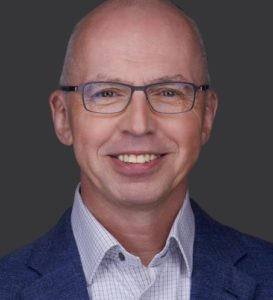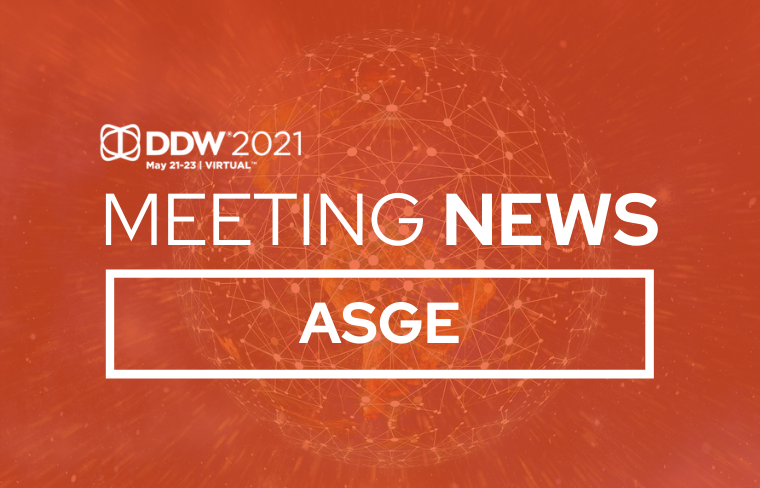The ASGE Presidential Plenary showcased what outgoing President Klaus Mergener, MD, PhD, MBA, of the University of Washington, called “a distillation of the crème de la crème of the abstracts and state-of-the-art lectures,” combined with a particular emphasis on GI fellowship training.

“We once again put together what I think is an outstanding list of topics and abstracts for this session, in addition to a variety of lectures on critically important topics,” Dr. Mergener said.
Topics on GI innovations included the use of artificial intelligence in endoscopy and a deeper dive into the latest on health care reform. In addition, the plenary also featured presentations on practical clinical skills, such as performing colonoscopies and new approaches in endoscopy.
“What I hope our audience took away is, first, the fact that outstanding research in GI endoscopy has continued throughout the year, despite the challenges imposed by the pandemic. And secondly, that periodically reviewing important clinical topics is critically important for all of us to stay at the cutting edge of our specialty,” Dr. Mergener said. “I think this plenary provided very important practical tips and tricks for our members who are providing endoscopic care in their own practice.”
In addition, the plenary focused on a topic that is “very near and dear to my heart, which is all the vital aspects of training and education,” said Dr. Mergener. “I personally had the good fortune of training with the late Dr. John Baillie at Duke University Medical Center, who had been extremely dedicated to his GI fellows, and I have always wanted to ‘pay it forward.’”
In a break from previous presidential plenaries, this year’s also featured an education panel led by ASGE Training Committee Chair Catharine M. Walsh, MD, MEd, PhD, of The Hospital for Sick Children at the University of Toronto, with faculty as well as trainees discussing the challenges of endoscopic training during the pandemic year, in addition to general training issues.
The session closed with the inauguration of ASGE’s incoming President Douglas K. Rex, MD, MASGE, of Indiana University Medical Center.
“We have a number of important fields to still develop and explore related to minimally invasive techniques to resect early cancers, to help treat the obesity pandemic in a minimally invasive way, and to improve our current techniques by using new and advanced equipment that will allow us, for example, to detect and remove polyps and early cancers,” Dr. Mergener summarized. “So there’s a very bright future still ahead for GI endoscopy as a field and for all our members.”
Dr. Mergener’s presidential address took place on Saturday, May 22, at 1 p.m. EDT, as part of the session “ASGE Presidential Plenary II: #StickItToCovid – Advancing Endoscopic Practice During the COVID-19 Pandemic.” Other presentations featured in the plenary include:
- “State-of-the-Art lecture: Health care reform – past, present and future” from Michael Chernew, PhD, of Harvard Medical School.
- “Ergonomic study analyzing differences in endoscopy styles between female and male gastroenterologists” from Asmeen Bhatt, MD, of the University of Texas Health Science Center.
- “The J. Edward Berk lecture: Improving diversity and inclusion in gastroenterology – the path ahead” from Jennifer Christie, MD, of Emory University School of Medicine.
- “Interim analyses of a prospective tandem colonoscopy study to determine proximal colon polyp miss rate among gastroenterology trainees” from Amanda Siegel, MD, of Northwestern University.
- “Varied trainee competence in cold snare polypectomy (CSP): Results of the complete randomized controlled trial – Improving Competency and Metric for Polypectomy Skills Using Evaluation Tools and Video Feedback” from Tonya Kaltenbach, MD, MS, FACG, of the Veteran’s Affairs Hospital at Palo Alto.
- “State-of-the-art roundtable on education: GI endoscope – the next generation” featuring Muddasir Ayaz, MD, of the University at Buffalo School of Medicine; Hasan Bader, MD, of the University of Missouri Kansas City School of Medicine; Jonathan Cohen, MD, of the NYU Langone School of Medicine; Lauren Feld, MD, of the University of Washington Medical Center; Laura Raffals, MD, of the Mayo Clinic and Catherine Walsh, MD, MEd, PhD, of The Hospital for Sick Children at the University of Toronto.



